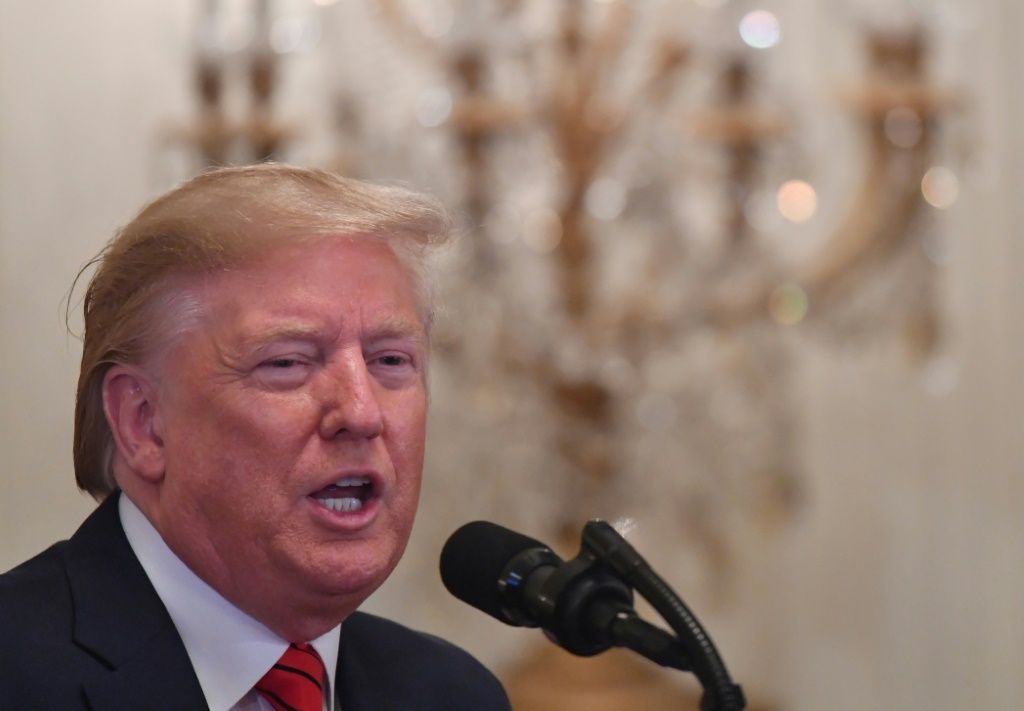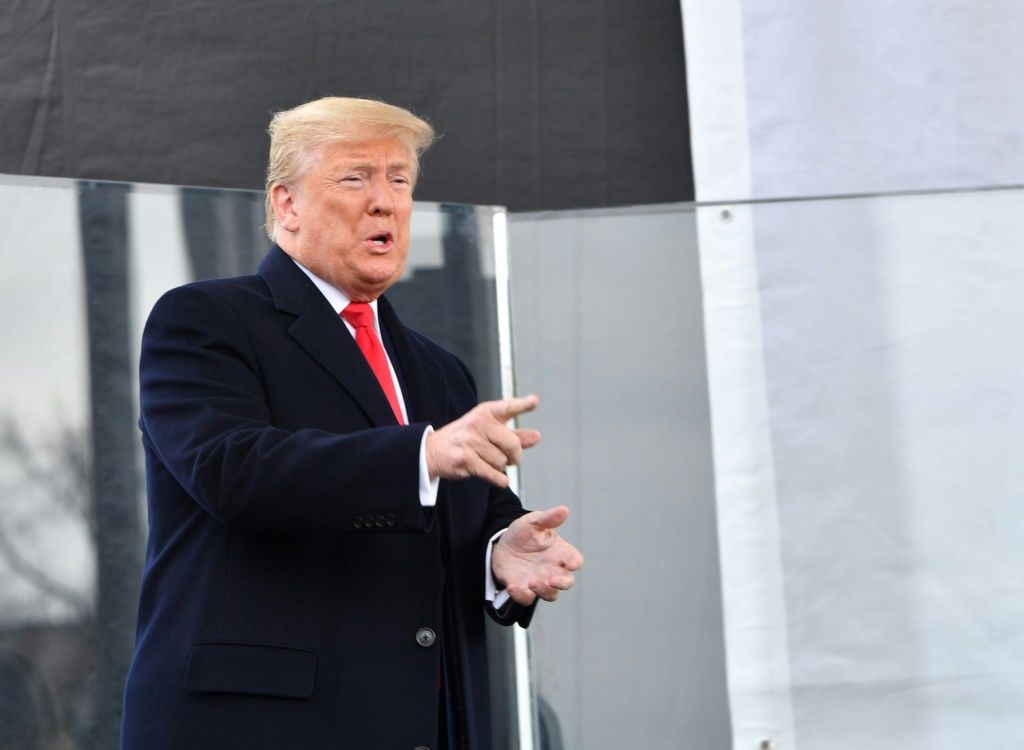Donald Trump: Dementia Concerns & Rumors - What You Need To Know
Is the specter of cognitive decline finally catching up with Donald Trump, the man who once commanded the world's stage? The whispers have grown into a chorus, fueled by a series of gaffes, memory lapses, and increasingly erratic behavior, all raising serious questions about the former president's mental acuity.
The rumors, which have swirled for years, gained fresh momentum on January 16, 2020, and have since been amplified by a multitude of incidents, ranging from peculiar speech patterns to moments of apparent confusion. The former president's public appearances have become a source of intense scrutiny, with observers dissecting every word and gesture, searching for clues that might illuminate the state of his cognitive health. The evidence, pieced together from a collection of public statements, media appearances, and expert opinions, paints a concerning picture for some and only fuels the fire of speculation.
The initial spark of the debate can be traced back to the early stages of the COVID-19 pandemic, as the former president's press conferences became a focus of widespread attention. During those addresses, a pattern began to emerge: repeated statements, the inability to read certain words, and a general sense of incoherence. These moments, amplified by the constant churn of social media, planted the seeds of doubt in the minds of many, and set the stage for a deeper examination of the former president's cognitive abilities. The echoes of those early concerns continue to resonate.
The former president's supporters, however, often dismiss such concerns as politically motivated attacks. They maintain that his verbal missteps are simply the product of a unique speaking style, or the result of the pressures of the public spotlight. However, his detractors point to a consistent trend over time, noting a perceived decline in his articulation, recall, and overall cognitive function. The stakes are incredibly high, with the potential for these cognitive issues to influence both domestic and foreign policy.
A watershed moment arrived during a speech at the Friends of Ireland luncheon on Wednesday, March 12th. At this event, the former president, then 78 years old, delivered a speech that many observers considered to be disjointed. Reports of butchered words and rambling sentences further intensified the ongoing debate. The former president's mental state, once a topic relegated to whispers, was now being openly discussed in major media outlets and across social media platforms. The incident became a focal point, providing fresh fodder for those who believed the former president's mental state was in decline.
One of the incidents cited by critics involved the former president's reaction to his debate performance. He claimed that the audience "went wild" for him, a statement which many found to be at odds with the reality of the situation. Observers noted a disparity between the former president's account and the actual reaction of the audience, once again raising questions about his grasp on reality. This perception further solidified the narratives that the former president was losing his connection to the present.
Further fueling the fire was the former president's alleged mistake in referring to the United Arab Emirates as the "United Arab Air Mattress," a slip-up that was quickly seized upon by critics as further evidence of mental decline. The incident, while seemingly minor, was viewed as a symbol of larger, deeper problems. These instances contributed to the image of a leader whose mental acuity was waning, making it difficult for his supporters to fully trust his judgment.
The former president's tendency to forget names, misremember events, and wander aimlessly, forgetting where he was going, has also contributed to the narrative of cognitive decline. These instances, taken individually might be dismissed, but when viewed as part of a larger pattern, they provide a glimpse into a disturbing trend. This behavior stands in stark contrast to the image of the decisive leader that the former president often cultivated during his time in office. These actions were, for some, powerful evidence that the former president was no longer fit for the demands of a high-pressure leadership role.
The "beautifewel" Christmas incident, which occurred during a Turning Point USA conference in West Palm Beach, Florida, provided fresh evidence. The former president's garbled speech, in which he attempted to wish supporters a "beautifewel" Christmas, offered further fuel to those who had already raised concerns about his health. The incident was widely shared across social media, reinforcing the impression that the former president's cognitive state was in decline. These mistakes provide ammunition to those who question his ability to lead.
In response to these recurring incidents, medical experts have weighed in on the issue. One expert, Dr. John Gartner, claimed in a Zoom call, that the former president was showing signs of dementia, further asserting that there was "no doubt" that the former president was exhibiting symptoms. While his words sparked a significant controversy, they were not the first time the medical community attempted to offer insights regarding the former president's cognitive health. While some medical professionals remained reluctant to comment on a patient they had never examined, others found the evidence too compelling to ignore.
The former president's critics have pointed to the numerous examples of his inconsistent behavior as evidence of his mental decline. The fact that he often forgot to mention his wife, Melania Trump, and his daughter, Tiffany, in his "whole family" statements. While these actions might be attributed to momentary lapses in memory, the frequency with which they occurred has contributed to the growing perception that the former president's mental faculties are not what they once were. While it is common for public figures to sometimes misspeak or make a mistake, the sheer number of missteps by the former president has become a source of concern.
The issue of whether the former president is displaying symptoms of dementia remains a deeply complex and sensitive topic. A diagnosis of this sort can only be confirmed by a medical professional through comprehensive testing. However, the increasing number of incidents and the growing voices of concern within the medical community, the media, and the general public suggest a deeper concern about the former president's cognitive health. The continued attention to this issue is a sign of the deep divisions within American society. This scrutiny highlights the high degree to which individuals and groups view any individual, including the former president, with profound mistrust and doubt.
The ongoing debate over Donald Trumps mental acuity is a stark reminder of the responsibilities that come with power, especially in the modern, hyper-connected world. As he continues to remain in the public sphere, the issue of his mental health will inevitably be scrutinized, with the stakes as high as the future of the nation.
| Category | Details |
|---|---|
| Full Name | Donald John Trump |
| Date of Birth | June 14, 1946 |
| Place of Birth | Queens, New York City, New York, U.S. |
| Education | Fordham University (attended for 2 years), Wharton School of the University of Pennsylvania (B.S. in Economics) |
| Political Affiliation | Republican |
| Political Positions | 3rd party for the Reform party, before becoming Republican |
| Spouse(s) | Ivana Zelnkov (m. 19771992), Marla Maples (m. 19931999), Melania Knauss (m. 2005present) |
| Children | Donald Jr., Ivanka, Eric, Tiffany, Barron |
| Notable Events | President of the United States (20172021), Businessman, Television Personality, Author |
| Business ventures | Real estate, hotels, casinos, golf courses, and other businesses under the Trump Organization. |
| Website | Donald J. Trump Official Website |
As the former president continues to navigate the political arena, the question of his cognitive health is bound to remain at the forefront. Regardless of where one stands on the political spectrum, the issue serves as a reminder of the importance of transparency, accountability, and the need for informed conversations about the mental and physical health of public figures.

Donald Trump Sparks Dementia Rumors After Staff Reveals He Didn’t Sleep

Donald Trump sparks fresh dementia rumors with 'beautifewel' Christmas

Donald Trump Sparks Dementia Rumors; POTUS Couldn’t Remember Mark